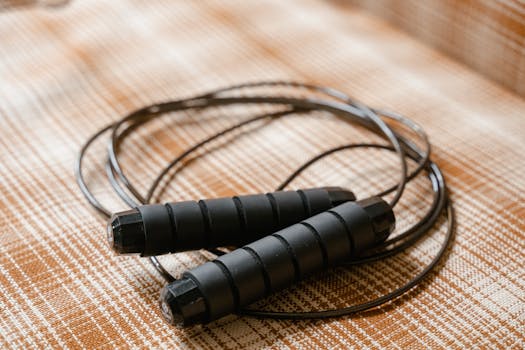Vaginal Odor During Menopause: Causes and Solutions
Nov 19, 2024
Menopause is a significant transition in a woman's life, marked by various physical and emotional changes. One of the less talked about but common issues during this period is vaginal odor. Many women experience this change, which can be both uncomfortable and distressing. Understanding the causes of vaginal odor during menopause and exploring effective solutions can empower women to manage their health better.
What Causes Vaginal Odor During Menopause?
Hormonal Changes
During menopause, the body undergoes a dramatic shift in hormone levels, particularly estrogen. Estrogen plays a crucial role in maintaining the vaginal environment. With lower estrogen levels, the vaginal walls can become thinner, drier, and less elastic, leading to a change in the natural flora of the vagina. This alteration can result in an increase in vaginal odor.
Decreased Vaginal Lubrication
As estrogen levels drop, many women experience vaginal dryness. This dryness can lead to irritation and inflammation, which may contribute to an unpleasant odor. Lack of lubrication can also affect the balance of bacteria in the vagina, further exacerbating the issue.
Bacterial Vaginosis (BV)
Bacterial vaginosis (BV) is a common condition that can occur during menopause. It arises when there is an imbalance in the normal bacteria found in the vagina. Symptoms of BV include a fishy odor, especially after sexual intercourse, and an increase in vaginal discharge. It's essential to consult a healthcare provider if you suspect BV, as it requires treatment.
Urinary Tract Infections (UTIs)
UTIs are more prevalent in menopausal women due to hormonal changes that affect the urinary tract. Symptoms can include a strong odor in the urine, along with burning sensations during urination and frequent urges to urinate. If you experience these symptoms, it's crucial to seek medical advice.
Poor Hygiene Practices
While it may seem obvious, inadequate hygiene can also lead to vaginal odor. During menopause, some women may feel less inclined to maintain their usual hygiene routines due to discomfort or changes in their bodies. Regular washing with mild soap and water can help maintain cleanliness and reduce odor.
Diet and Lifestyle Factors
What you eat can significantly impact your body odor, including vaginal odor. Diets high in sugar, processed foods, and certain spices can contribute to unpleasant smells. Additionally, lifestyle factors such as smoking and excessive alcohol consumption can also play a role in body odor.

How to Manage Vaginal Odor During Menopause
Maintain Proper Hygiene
Daily Cleaning: Wash the vaginal area daily with mild, unscented soap and water. Avoid douching, as it can disrupt the natural balance of bacteria.
Wear Breathable Fabrics: Choose cotton underwear and breathable clothing to reduce moisture buildup, which can contribute to odor.
Stay Hydrated: Drinking plenty of water helps flush out toxins and can improve overall body odor.
Use Vaginal Moisturizers
Vaginal moisturizers can help alleviate dryness and irritation. These products can restore moisture to the vaginal walls, improving comfort and potentially reducing odor. Look for products specifically designed for vaginal use, and consult your healthcare provider for recommendations. Check out our recommended vaginal moisturizers.
Consider Hormone Replacement Therapy (HRT)
Hormone replacement therapy can be an effective option for managing menopausal symptoms, including vaginal dryness and odor. HRT can help restore estrogen levels, improving vaginal health. However, it's essential to discuss the risks and benefits with your healthcare provider to determine if HRT is suitable for you.
Dietary Adjustments
Balanced Diet: Incorporate a diet rich in fruits, vegetables, whole grains, and lean proteins. Foods high in probiotics, such as yogurt, can help maintain a healthy vaginal flora.
Limit Sugary and Processed Foods: Reducing sugar intake can help minimize yeast growth, which may contribute to odor.
Stay Away from Strong Spices: Certain spices can affect body odor; consider moderating your intake of garlic, onions, and other strong-flavored foods.
Regular Medical Check-ups
Regular visits to your healthcare provider are crucial during menopause. They can help monitor your health, address any concerns regarding vaginal odor, and provide appropriate treatments for conditions like BV or UTIs.
Seek Support
Menopause can be a challenging time, both physically and emotionally. Consider joining support groups or seeking counseling to discuss your experiences with others who understand what you're going through. Sharing your concerns can help alleviate feelings of isolation and provide valuable insights. Check out our menopause support resources.

When to See a Doctor
While vaginal odor can be a common issue during menopause, certain symptoms warrant a visit to your healthcare provider:
A strong, fishy odor that persists despite good hygiene.
Changes in vaginal discharge, such as an unusual color or consistency.
Symptoms of a urinary tract infection, such as burning during urination or frequent urges to urinate.
Any discomfort or pain in the vaginal area.
Conclusion
Experiencing vaginal odor during menopause is a common issue that many women face. Understanding the underlying causes and exploring effective management strategies can help you regain confidence and comfort during this transitional phase of life. At Tidalflow, we recognize the unique challenges women encounter during menopause, and we offer personalized solutions to support your health journey.

Our AI-powered personal training services can help you navigate this period with tailored fitness and wellness plans that consider your specific needs. Whether you're looking to improve your overall health, manage weight, or enhance your physical fitness, Tidalflow is here to support you every step of the way. Explore our personal training services today and take charge of your health!
Disclaimer: This article is for informational purposes only and does not substitute professional medical advice. Consult a healthcare provider for personalized recommendations.
You should not have to do it all on your own













